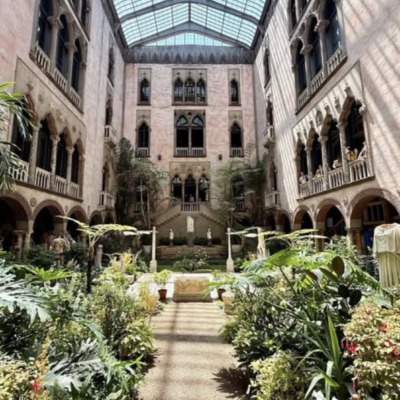Black History Month – Understanding Colonialism’s Impact on African History
During meals, I often heard the phrase, “Don’t waste your food because there are children starving in Africa.” But why is that the most common narrative about Africa? Why is the continent so often associated with poverty and struggle? While there is no single answer, I believe colonialism is a major reason why many African countries continue to face economic hardship today.
Whitewashing Colonialism: Myths & Realities
Nigel Biggar, former director of the MacDonald Centre for Theology, Ethics, and Public Life, led a research project called Ethics and Empire, which aimed to assess the morality of imperialism. Biggar attempted to justify colonial rule, citing examples such as Britain’s abolition of the Atlantic slave trade in 1807 and the fact that Black Africans were granted voting rights in 1892 — 17 years before African Americans men were given the right to vote.
However, this selective framing ignores the deeper harm of colonial rule. The Cape Franchise and Ballot Act, for example, may have allowed a “non-racial franchise,” but it also raised the property qualification for voting from £25 to £75 — effectively disenfranchising many Black South Africans. As historian Sabelo
Ndlovu-Gatsheni puts it in Moral Evil, Economic Good, “The fact is the African struggles were not undertaken for a trinket like getting voting rights under colonialism.” Imperialism didn’t just limit political rights; it reshaped entire economies and societies to benefit European powers at the expense of the colonized.
What Africa Could Have Been: The Devastation of the Berlin Conference
Had imperialism never happened, Africa could have taken a very different path. Before European intervention, various African kingdoms, such as Mali, Songhai and Great Zimbabwe, thrived with sophisticated trade networks, governance systems, and cultural achievements. The Berlin Conference of 1885, however, marked a turning point. European nations carved up Africa without regard for existing political ties or rivalries. This disregard led to artificial borders, internal conflicts, and the forced restructuring of African economies to serve European interests.
Many African and Latin American countries now have cash crop economies, where the bulk of their GDP relies on a single commodity, such as bananas or vanilla beans. This dependency makes them vulnerable to economic fluctuations, further limiting their growth. Imperialist economic structures continue to push many people to migrate to countries like the U.S. in search of stability, ironically, in nations that profited from their historical exploitation.
Lasting Effects of Imperialism: The Wealth Gap in Boston
The effects of imperialism extend far beyond Africa and can be seen in places like Boston through the racial wealth gap. According to The Boston Globe, a study by the Federal Reserve Bank of Boston found that the average net worth of Black households in Greater Boston is just $8, compared to $247,000 for white households. That disparity is staggering.
One major factor is homeownership. After World War II, the GI Bill helped millions of veterans purchase homes, allowing them to build wealth that could be passed down to future generations. However, discriminatory policies like redlining denied many Black veterans access to these benefits. The GI Bill could have been the “40 acres and a mule” that America never provided as reparations for slavery, but instead, it reinforced racial economic disparities. The racial wealth gap today is not just about individual choices; it is the result of systemic oppression that dates back to colonialism and the economic systems it put in place.
Know Your History
In many schools, Black history is taught primarily through the lens of struggle. While resilience is crucial to understand, so is the richness of African cultures, traditions, and successes. Africa is a vast continent with diverse languages, histories, and innovations that deserve better representation in media and education.
For me, learning about a broader history — beyond suffering — has strengthened my pride in my identity, my roots, and even my relationship with my hair. Knowledge is power, and understanding history is essential to breaking cycles of misinformation and reclaiming narratives about Africa and its people.










